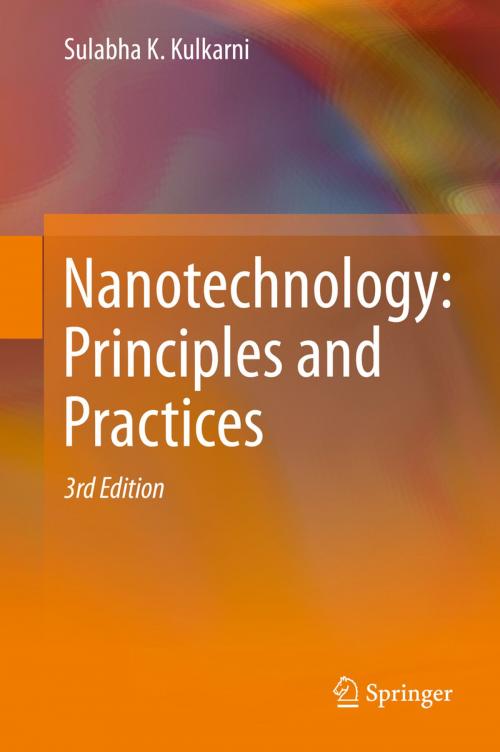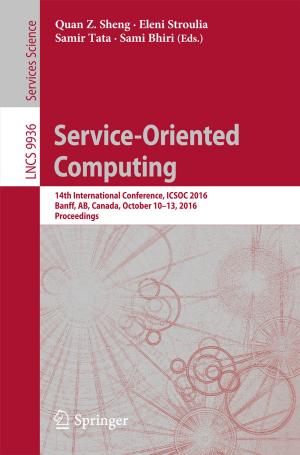Nanotechnology: Principles and Practices
Nonfiction, Science & Nature, Science, Other Sciences, Nanostructures, Technology, Nanotechnology| Author: | Sulabha K. Kulkarni | ISBN: | 9783319091716 |
| Publisher: | Springer International Publishing | Publication: | November 3, 2014 |
| Imprint: | Springer | Language: | English |
| Author: | Sulabha K. Kulkarni |
| ISBN: | 9783319091716 |
| Publisher: | Springer International Publishing |
| Publication: | November 3, 2014 |
| Imprint: | Springer |
| Language: | English |
Given the rapid advances in the field, this book offers an up-to-date introduction to nanomaterials and nanotechnology. Though condensed into a relatively small volume, it spans the whole range of multidisciplinary topics related to nanotechnology. Starting with the basic concepts of quantum mechanics and solid state physics, it presents both physical and chemical synthetic methods, as well as analytical techniques for studying nanostructures. The size-specific properties of nanomaterials, such as their thermal, mechanical, optical and magnetic characteristics, are discussed in detail.
The book goes on to illustrate the various applications of nanomaterials in electronics, optoelectronics, cosmetics, energy, textiles and the medical field and discusses the environmental impact of these technologies. Many new areas, materials and effects are then introduced, including spintronics, soft lithography, metamaterials, the lotus effect, the Gecko effect and graphene. The book also explains the functional principles of essential techniques, such as scanning tunneling microscopy (STM), atomic force microscopy (AFM), scanning near field optical microscopy (SNOM), Raman spectroscopy and photoelectron microscopy. In closing, Chapter 14, ‘Practicals’, provides a helpful guide to setting up and conducting inexpensive nanotechnology experiments in teaching laboratories.
Given the rapid advances in the field, this book offers an up-to-date introduction to nanomaterials and nanotechnology. Though condensed into a relatively small volume, it spans the whole range of multidisciplinary topics related to nanotechnology. Starting with the basic concepts of quantum mechanics and solid state physics, it presents both physical and chemical synthetic methods, as well as analytical techniques for studying nanostructures. The size-specific properties of nanomaterials, such as their thermal, mechanical, optical and magnetic characteristics, are discussed in detail.
The book goes on to illustrate the various applications of nanomaterials in electronics, optoelectronics, cosmetics, energy, textiles and the medical field and discusses the environmental impact of these technologies. Many new areas, materials and effects are then introduced, including spintronics, soft lithography, metamaterials, the lotus effect, the Gecko effect and graphene. The book also explains the functional principles of essential techniques, such as scanning tunneling microscopy (STM), atomic force microscopy (AFM), scanning near field optical microscopy (SNOM), Raman spectroscopy and photoelectron microscopy. In closing, Chapter 14, ‘Practicals’, provides a helpful guide to setting up and conducting inexpensive nanotechnology experiments in teaching laboratories.















